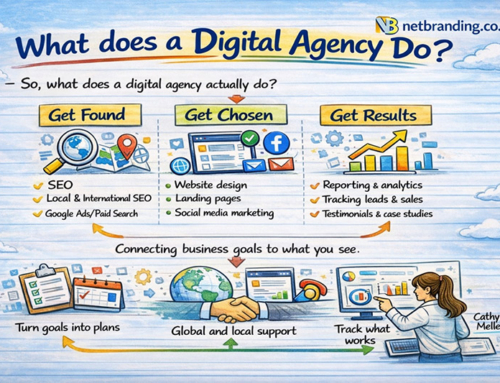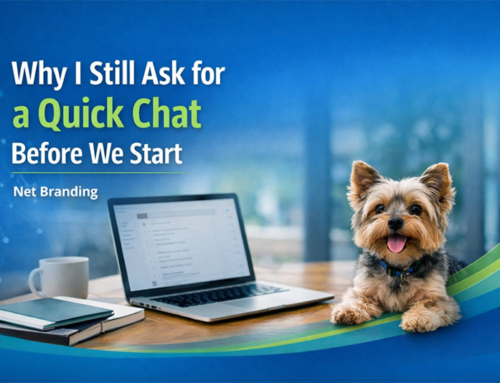
The change in approach to AI-generated content. What is happening in Google land? Will our website’s be penalised because of AI content and what is considered good online practice? Google’s stance on AI-generated content has undergone a significant shift in the last month.
In April 2022, Google’s Search Advocate, John Mueller, declared that content generated automatically using AI writing tools violates Google’s Webmaster Guidelines. However, in February 2023, Google clarified its advice on AI-generated content, stating that it does not care who or what creates the content, as long as it is written to help people and not to manipulate search results.
The concept of “Who, How and Why” as a baseline of elements to be included into any web content uploaded to your website to become more important in prepped content for online distribution and access.
The updated guidance in February 2023 recommends that authors add accurate authorship information and provide background about how automation or AI-generation was used to create the content. Additionally, Google suggests that content should be created primarily to help people and not to attract search engine visits.
This recent change in Google’s stance can be attributed to several factors, including the increased use of AI-generated content, the need for more relevant and helpful content, Google’s own AI-powered tools, the evolution of E-A-T guidelines, and the need for transparency. I will expand on these elements below.
Relevant articles shared by industry experts over the last year.
This February 2023 change alters a recent blog published by Net Branding Limited only a few weeks back (January 2023). SEE January Blog Here
The two articles by Search Engine Land and Mediums shared above, reflect the change in Google’s updated stance on AI-generated content. In April 2022, Google’s Search Advocate, John Mueller, declared that content generated using AI writing tools violates Google’s Webmaster Guidelines. However, it is now clear that in February 2023, Google clarified its advice (or altered course), stating that it does not care who or what creates the content, as long as it is written to help people and not to manipulate search results. The updated guidance recommends that website content authors add accurate authorship information and provide background about how automation or AI generation was used to create the content.
Content for the People – It has always been so and continues to be so.
We note that in this clarification by Google, Google suggests that content should be created primarily to help people and not to attract search engine visits. A measure (by Google) of the success of content would be Click Through Rates to showcased search ranking results along with time on pages for the said content.
So why had this change come about as suddenly as it has? Our Net Branding team discussed the change in Google’s guidance on AI-generated content and is of the opinion that this backtrack by Google can be attributed to several reasons.
Here are our five possible reasons why Google has shifted its stance:
1. Increased use of AI-generated content: With the advancement of AI technology, more and more businesses are using AI-powered content creation tools to generate content quickly and efficiently. This has led to an increase in AI-generated content on the web, making it challenging for Google to enforce its previous policies against such content.
2. The need for more relevant and helpful content: Google’s primary focus is to provide the most relevant and helpful search results for its users. With the increase in AI-generated content, Google may have realised that some of this content is actually helpful and relevant to users, and penalising it based solely on its origin may not serve the best interests of its users. Remember the EEAT element.
3. Google’s own AI-powered tools: Google has been investing heavily in AI technology and has developed several AI-powered tools, including its AI-powered language model, BERT, and its natural language processing tool, RankBrain. It’s possible that Google’s own in-house tools have influenced its decision to shift its stance on AI-generated content. You cannot be penalising something and then promoting it in the same breath. And we believe that BERT crafted content will quickly make its way to the top of a Google result in the not to distant future.
4. Evolution of Experience- E-A-T guidelines: E-E-A-T (Experience, Expertise, Authoritativeness, Trustworthiness) is a crucial aspect of Google’s search algorithm, and the guidelines for E-A-T and then E-E-A-T have evolved over time. As Google has refined its understanding of what makes content trustworthy and authoritative, it may have realized that AI-generated content can also meet these standards.
5. The need for transparency: Google has always emphasised the importance of transparency and honesty in online content. With the increase in AI-generated content, there is a greater need for transparency in disclosing the use of AI tools in content creation. By encouraging authors to provide accurate authorship information and AI/automation disclosures, Google is promoting greater transparency and honesty in content creation.
One certain thing is clear. The internet, SEO, Content, and ranking is a moving field of recommendations and actions. Possibly the most important take out of all of this is that content is king but relevant content for an interested user that provides all the principles of E-E-A-T is important. Content should not be there for content’s sake but content should be there for value add and interest. We believe this will refocus measures on CTR and time on page as accurate measures of E-E-A-T and a related method of how Google perceives your content to be consumed by a site searcher.
We hope this article has shed some light on the evolving world of AI-generated content and its impact on SEO. If you have any further questions or would like to discuss how to create high-quality, helpful content that meets Google’s guidelines, don’t hesitate to reach out to our team of SEO specialists and critical thinkers. As the digital landscape continues to evolve, staying up to date with the latest trends and best practices is essential for maintaining a strong online presence and reaching your target audience effectively.






